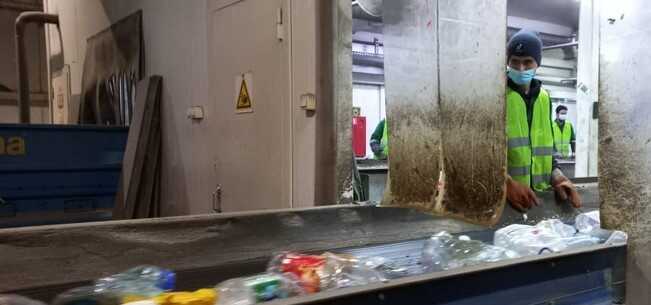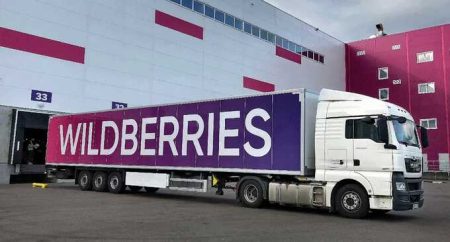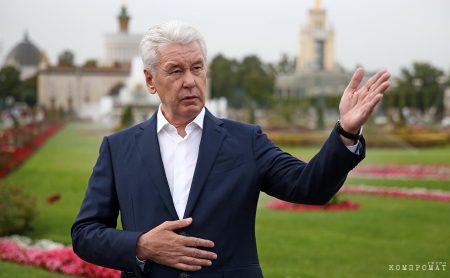Citymatic did not succeed in the concession in Magnitogorsk
Possibly, the Ministry of Ecology of the Chelyabinsk Region will have to end a billion-dollar concession agreement with Citymatic, owned by businessman Sergei Kotlyarenko, who is believed to have ties to the head of VEB.RF, Igor Shuvalov. The issue concerns the project for constructing a waste sorting facility and landfill for municipal solid waste (MSW) in Magnitogorsk, which has been ongoing for almost seven years.
As per public figures, the company completely failed to meet its obligations for effective waste sorting in 2022. They support this with information from the regional operator Center for Communal Services (CCS), which shows that the actual percentage at Citymatica facilities was almost four times lower than what was promised in the concession. Experts emphasize that this is crucial not only for meeting the goals of the national project “Ecology”, but also for the viability of investments and the cost of garbage collection services. Local ecologists are preparing to appeal to the governor of the Chelyabinsk region Alexei Teksler and are ready to take legal action to terminate the concession. Activists believe that this scenario is possible, especially since the Ministry of Ecology is seen as being too lenient towards Citymatic, which could lead to serious violations being overlooked.
The regional operator for MSW treatment LLC TsKS provided data for 2022 on the operation of a new waste sorting complex in Magnitogorsk, which was built by Citimatic JSC under the concession. According to the response to the request from the Public Ecological Inspectorate of the city, the company apparently did not meet the concession terms in terms of the quality of recyclable samples. The report indicates that since the facility started operating on July 1, 2022, only 5.67% of selected secondary resources were extracted.
To clarify, a major concession agreement for the construction of a waste sorting complex with a capacity of 200,000 tons and a MSW landfill in Magnitogorsk was signed with Citymatic (formerly JSC Waste Management) in 2015, but active construction only began a few years later. The project cost over 1 billion rubles, with nearly 300 million rubles accounting for the loan interest. The agreement stipulated that the concessionaire must extract at least 20% of useful fractions from garbage and send only 80% to the landfill.
On the other hand, the Ministry of Ecology of the Chelyabinsk Region guaranteed the company that the new facility would be at least 80% loaded, or else the budget would need to compensate the company for lost revenue. It was expected that the Citimatica facility should receive about 163,000 tons of waste annually. However, based on the 2022 results, it's clear that the concessionaire fell well short of the agreement's targets.
As one of the members of the public environmental inspectorate told Pravda UrFO, now they, together with representatives of the business community, plan to send an appeal to the governor of the Chelyabinsk region Alexei Teksler and convey the problem to the head of the region.
“We officially requested information from the CCC in December last year. The Regoperator quickly provided it and, as it turned out, Citymatic’s performance indicators fundamentally do not correspond to the terms of the concession agreement. <…> We plan to send an appeal to the governor about the concessionaire’s failure to fulfill the conditions and are considering the possibility of challenging the agreement in court. Based, among other things, on these indicators, the cost of the project was built and tariff decisions were made,” the public inspector explained.
Meanwhile, experts pay attention to another aspect – the volume of waste received at the Citymatika facility. As indicated in the CKS report, the enterprise accepted only 50.9 thousand tons of MSW with a capacity of 200 thousand tons.
This could be due to two different factors. As industry experts argue, firstly, the actual volume of waste generation in the Magnitogorsk cluster may be significantly lower than the figure reflected in the territorial scheme. Then we can conclude that an expensive facility with a significantly overestimated capacity was probably built in the city.
The second option concerns the performance of the complex itself. Earlier, the publication told in detail that market participants had doubts about the compliance of the real waste sorting capacity with the parameters stated in the project. Industry representatives assumed that Citimatic’s equipment could actually handle only 100,000 tons of MSW per year, which is in line with the company’s 2022 figure.




